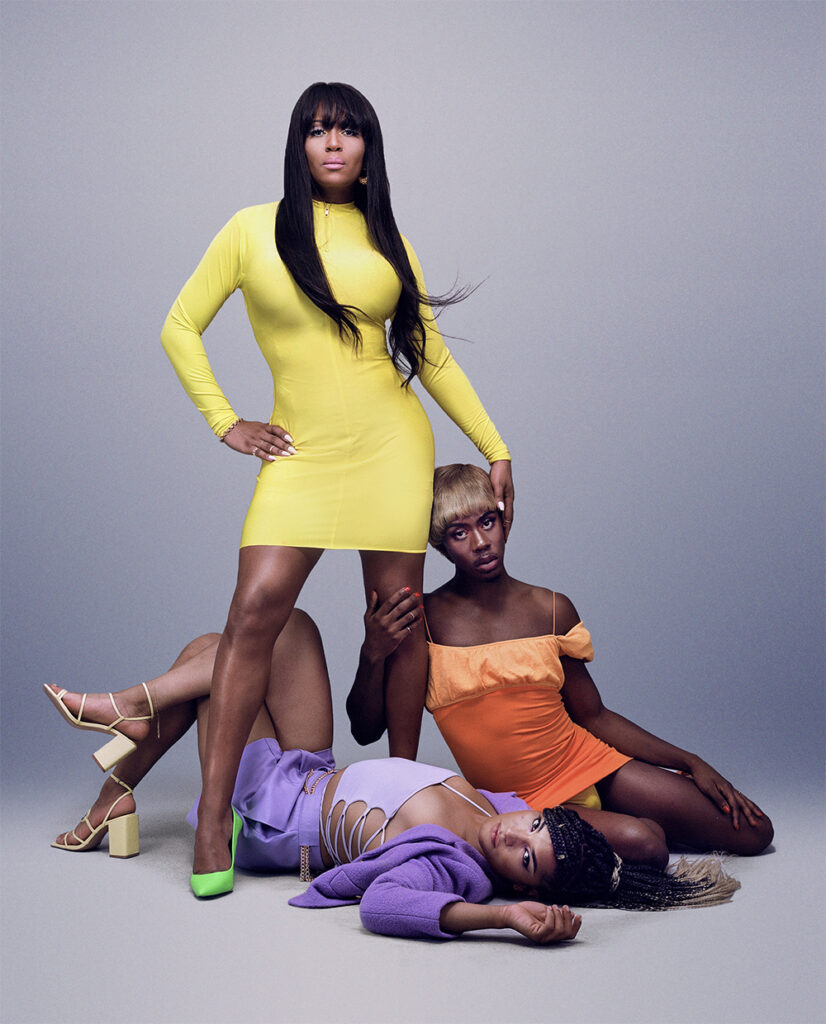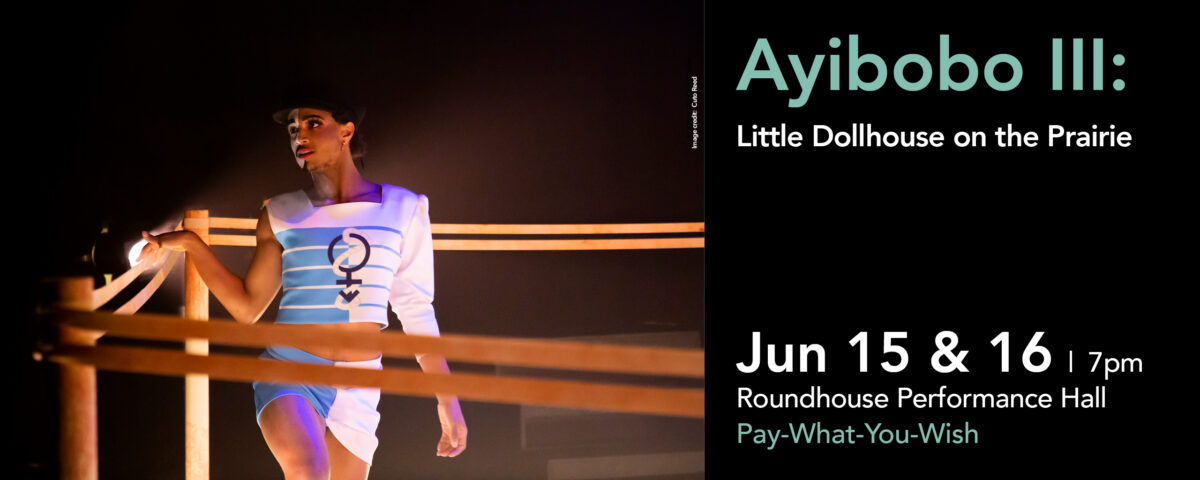Little Dollhouse on the Prairie
Jun 15 & 16 | 7pm | Roundhouse Performance Hall | Pay-What-You-Wish
Brought to you by Elle Barbara, avant-garde creator and Mother of Montreal’s Idiosyncratic House of Barbara, Ayibobo III: Little Dollhouse on the Prairie is a work of high-octane performance art, merging dance with experimental soundscapes. Drawing audiences into a kinetic and spiritual vortex of pop culture and Haitian Voodoo, Ayibobo III explores the intersections of Black and queer identity. Ballroom performers embody a dizzying range of figures, from Tyra Banks to loas from Haitian spirituality, bridging contemporary and ancestral understandings of gender and sexuality and gender.
Ayibobo III: Little Dollhouse on the Prairie is a co-production between the frank theatre, Danse Cité, and House of Barbara, presented by Queer Arts Festival.
Directed by Elle Barbara
Starring – Christen M. Barbara, Syana O. Barbara
Special guests – Kim Ninkuru, Rony F. 007
Jon Cleveland – Lighting design + Technical direction
Markus Lake – Sound design
Marilène Bastien – Costumes
Micaela Alleyne – Makeup
Emile Pineault – Production

About Elle Barbara
Elle Barbara is a Montréal-based avant-garde singer-songwriter, song selector (TS Ellise), pinup, speaker, writer, director, curator, performance artist and intervention worker whose musical output combines elements of soul, psychedelia, jazz, and underground. A lover of the odd, dark, or overlooked elements in pop music, Elle rose from artist-run spaces at the turn of the 2010s and has seen their work soar to enduring acclaim. In recent years, Elle Barbara has centred efforts around trans and queer community organizing, including contributions in Montréal’s emerging ballroom scene as the Iconic Mother of the Idiosyncratic Meta House of Barbara. The House of Barbara, in addition to throwing balls, is a collective whose transdisciplinary practice encompasses performance, activism and DJing. Elle’s current musical incarnation (Elle Barbara’s Black Space) aims to centre intersectional Blackness and reject anti-Black tropes within the city’s art and music spaces.




